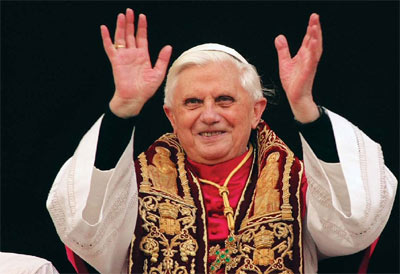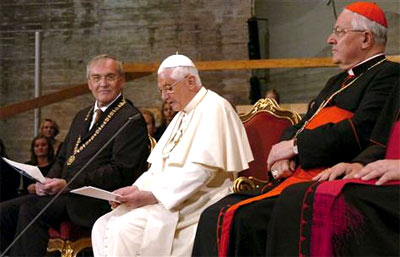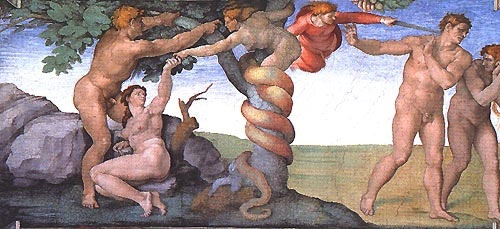Ac. Krtashivanda
During his university lecture in Regensburg after being elected, the Pope quoted the words of Byzantine emperor Manuel II Paleologus: “Show me just what Mohammed brought that was new, and there you will find things only evil and inhuman, such as his command to spread by the sword the faith he preached”. That had created a furore in the Islamic world.
The Pope further said that violence is incompatible with the nature of God and the nature of soul. “God,” he said, “is not pleased by blood—and not acting reasonably is contrary to God’s nature. Faith is born of the soul not of the body”. “To convince a reasonable soul”, he continued, “one does not need a strong arm, or weapons of any kind, or any other means of threatening a person with death”.
The controversial words of the Pope’s lecture were not delivered without careful pre-thought; they were a deliberate attempt to challenge Islamic countries to reject their intolerant stance towards non-Muslims, and to spark an open dialogue on reciprocity. The Papal biographer George Weigel said, “He knew what he was doing.” “He is saying that irrational violence is displeasing to God”.
The question the Pope is putting on the table is: Does the significant part of Islam have the capacity to be self-critical?
Islam has the same historical background as Judaism and Christianity. Like Jews and Christians, Muslims also believe in the myth that theirs is the only true religion. Those who do not believe in the Koran, are declared as non-believers, or kafirs. Like Christians, Muslims developed a passion for world domination and converted non-believers even through intimidation. The influence of the Renaissance in Europe altered the violent character of the Catholic religion, but the mindset of the orthodox Islamic world today has remained virtually unchanged. It is still confined to establishing an Islamic Nation (except a few countries) and to obeying the Shariat, a legal code that severely curtails the freedom of women and non-believers and negates the scientific mode of thinking. Of course, the progressive people of Islamic societies in many countries are revolting against such dogmatic impositions. But even progressive Muslims and intellectuals are not loud enough on the need of reciprocity.
The Pope’s concern was Islam’s potential for extremism based on a literal interpretation of the Koran. He said, “One has to have a clear understanding that it is not simply a denomination that can be included in the free realm of pluralistic society”.
In 1995, Muslims were allowed to build a mosque in Rome – the biggest in Italy – but Catholics have not been permitted to build a church in Saudi Arabia. Muslims demand all the benefits of a free society in Europe but they don’t accord the same rights to people of other faiths in their own countries. Non-Muslims are not permitted to even enter Mecca. In Iran, Zoroastrians are deprived of their religious rights. It is strange that this double standard does not bite the conscience of Muslim intellectuals and progressives. Will Muslims ever consider allowing, even reluctantly, the building of any church or temple in Mecca?
The violent and fundamentalist reaction of the Muslim world to the Pope’s lecture proved beyond doubt that the Pope raised a vital question on reciprocity, and exposed the culture of intolerance promoted by the Islamic community.
The human mind wants freedom and hence cannot remain forever imprisoned within the narrow fence of dogmatic scriptural injunctions. The Islamic world is afraid to face the truth that the evolution of higher knowledge and human consciousness is a natural process. Islam must also evolve according to changes in time, place and person. Any system, culture, or religion based on relative values failing to adjust to such changes inevitably becomes obsolete.
The Pope was also critical of the concept of pure scientific reason which is merely materialistic: “A reason which is deaf to the divine and which relegates religion into the realm of subcultures is incapable of entering into the dialogue of cultures.” He added, “[…] modern scientific reason with its intrinsically Platonic element bears within itself a question which points beyond itself and beyond the possibilities of its methodology.”
In conclusion, he urged: “It is this great Logos, to this breadth of reason, that we invite our partners (both religious and secular) in the dialogue of cultures. To rediscover it constantly is our great task”.
Incidentally, it escaped his argument that the yardstick of reason may also cause the concept of heaven and hell to crumble. The myth of Heaven too, which will never allow Adam and Eve to achieve freedom is another contradiction to the fundamental essence of the human spirit.
It is baffling that in this century the tendency to relapse into medieval obscurantism is gaining momentum. With the collapse of the Soviet Empire the movement for self-reliance has adopted sentiments and slogans of religious fundamentalism – presented to the innocent man and woman as an antithesis to the pseudo-culture, economic domination and values of the Western world. In search of security people have slipped into the backwaters of dogmatic faith.
This represents a new flare-up – probably the last gasp – in the age-old life-and-death struggle between religion and science, between faith and reason, and between mystic agnosticism and empirical knowledge – a struggle which has always placed civilized humanity in a dilemma.
The scientific mode of thought, having driven religion from pillar to post over a period of several centuries, is meeting the final assault from of a hitherto vanquished adversary. Denying the possibility of ever knowing reality through direct experience, religions preach a neo-mysticism and a teleological view of life which is the expression of humanity’s loss of faith in itself.
This is in contradiction to spiritual enlightenment, which leads the human mind to experience the real essence of freedom and the organic wholeness of creation beyond the boundaries of race, religion, nation, caste, tribe and gender. Only with the evolution of this New Humanistic consciousness the narrow psychic boundaries can be transcended, heralding ultimately to a harmonious world community.



